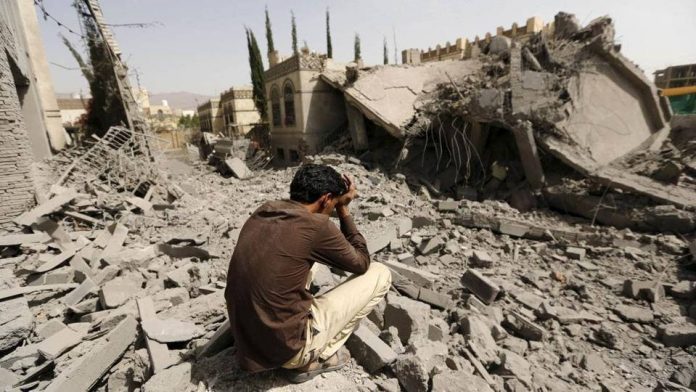The Commission has allocated an additional €90 million in humanitarian aid for civilians in Yemen, as the conflict-torn country plunges into the world’s worst hunger crisis.
The new funding brings total EU humanitarian assistance in Yemen in 2018 to €118 million and will be channelled exclusively through humanitarian organisations.
“We are in a race against time to avoid a famine in Yemen. That is why the EU is stepping up its life-saving humanitarian assistance to the Yemeni people. Some 8 million vulnerable people will benefit from our additional funding, that will be directed at covering – among others – nutritional, health, sanitation and protection needs. However, the only way to stop this ongoing humanitarian tragedy is through a political solution that puts an end to the violence,” said Commissioner for Humanitarian Aid and Crisis Management Christos Stylianides.
Commissioner Stylianides also stressed the imperative need for parties to the conflict to uphold International Humanitarian Law, such as ensuring that humanitarian assistance reaches those in need, and that civilians and aid workers are not targeted.
The funding announced today will contribute to the continuation of efforts to address the needs of the most vulnerable people in Yemen by providing a wide range of assistance such as food, nutrition, health services, shelter, water and sanitation, education and protection. Through EU support, the United Nations World Food Programme will provide food aid to over 8 million Yemenis.
The EU has also been providing aid to tackle the Cholera outbreak affecting the country.
Since the beginning of the conflict in 2015, the EU has allocated €323.7 million in humanitarian aid to the Yemen crisis.
The on-going conflict and its consequences has left around 22.2 million people (over 75% of the population) in dire need of humanitarian assistance, while some 3.5 million people have been displaced. Nearly 18 million Yemenis are in need of food assistance and approximately 8.4 million are on the brink of famine
Protracted violence and the destruction of basic infrastructure, coupled with the collapse of the economy and the financial system continues to severely limit access to food, medicine and fuel. The collapse of public services in Houthi controlled areas, the ongoing military offensive in Hodeida and the rapid devaluation of the national currency continue to have devastating humanitarian consequences. The United Nations has outlined the danger of an imminent famine in Yemen, which could affect half of its population.
At the same time, Yemen is suffering from the largest cholera outbreak ever-recorded in the country, with nearly 1.2 million suspected cases. Violations of International Humanitarian Law by parties to the conflict continue to be reported and the impact on civilians has increased since the start of Hodeida offensive.

